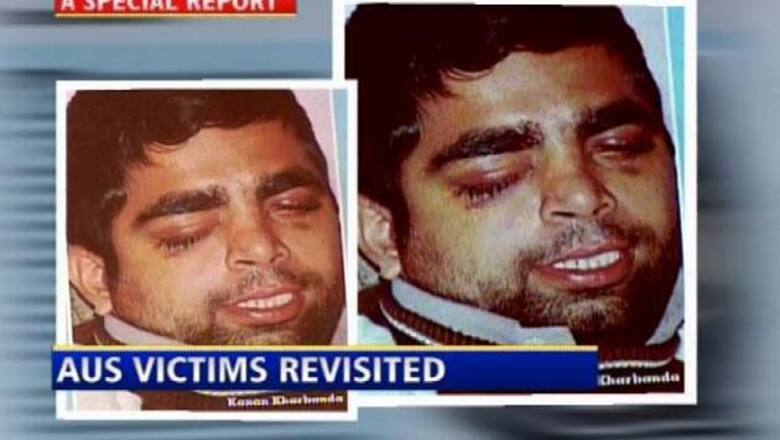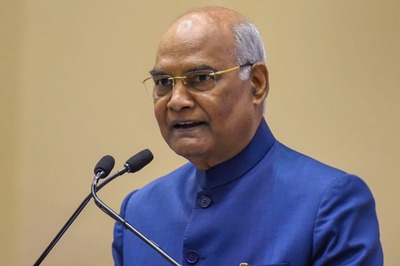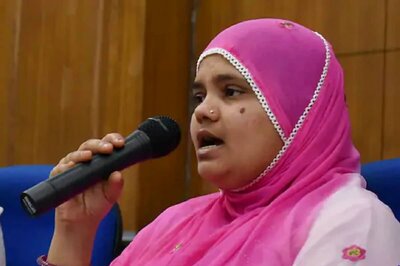
views
Melbourne: Despite Australia's all round efforts to further develop its ties with India, the issue of racism dominated their relations in 2010 following the murder of an Indian student and revelation of racist emails circulated by Victorian police.
Arrival of 100,000 Indian students in Australia in the past five years was the biggest thing to happen to Australia and India relations since the 1790s. But the year also saw a decline in the number of Indian students after the Australian government announced a new stricter visa regime.
The new visa conditions introduced in a bid to halt dubious activities of "training colleges" and "dodgy migration agents" who were cashing on the loopholes of education and 'permanent residency'.
The year kicked off on a very shaky note with the killing of 22-year-old Indian student Nitin Garg in early January, threatening the bilateral ties.
News of Garg's murder, who was stabbed to death in Melbourne's west, received widespread media coverage, prompting External Affairs Minister S M Krishna to demand stringent action by the Australian government.
"This heinous crime on humanity, this is an uncivilised brutal attack on innocent Indians. It certainly will have some bearing on the bilateral ties between our two countries," he had then warned.
The incident prompted Australia to hold a massive campaign 'Vindaloo against Violence' to show their solidarity and denounce spate of attacks against Indian community.
The case was solved at the end of the year and two Melbourne teenagers were charged in the case with one avoiding a jail term for his part in the murder of Garg.
The year also saw for the first time Victorian government acting on the racial vilification laws which were in place for almost a decade.
Three men faced court in Victorian court on the charges of racism after allegedly physically assaulting and racially abusing a 22-year-old Indian student Rajan Kumar Katkam.
While Australia tried its best to wipe out 'racism' allegations, India once again summoned Australian High Commissioner Peter Varghese over racist emails circulated by Victorian police officers crudely suggesting action to ensure the "safety" of Indians in Australia.
The email scandal dealt a fresh blow to relations between Delhi and Canberra.
The two countries worked hard to bring back the normalcy with a string of high-level visits between them.
Australian Trade Minister Simon Crean visited India to reassure it pursuing deeper bilateral, regional and international cooperation with India in a wide range of fields, including on strategic and security matters.
On the other hand, Indian ministers - Human Resource Development Minister Kapil Sibal, Overseas Indian Affairs Minister Vayalar Ravi also visited Down Under.
Sibal reviewed the steps taken by the Australian government on safety and security of Indian students with the then Foreign Minister Stephen Smith.
During his visit, Vayalar Ravi met several Australian government officials and authorities to discuss the condition of Indian students and visa issues pertaining to them.
Australian government initiated rapid audit programme for improving the quality of educational institutions that came into spotlight following Indian student attack issue.
The new immigration rules were announced to crackdown on people seeking permanent residency through low-value education courses.
This led to closure of many vocational colleges, leaving hundreds of Indian students wondering about their future.
Between 2003 and 2009, the number of overseas vocational students jumped from 48,573 to 212,538.
The new migration rules and reports of students safety led to decline in Indian students' numbers by almost half during the year.
In a dramatic political development in June, Julia Gillard, then deputy prime minister revolted against prime minister Kevin Rudd and forced him to step down and became Australia's first woman Prime Minister.
She announced General election in August and after prolonged political uncertainty with her Labor coalition returned to power in September with a slim majority. She appointed Rudd as her Foreign Minister.
Concerned over a decline in enrollments of overseas students, the government has said it would review the existing student visa policy to boost its multi-billion dollar education sector.
On business front, India and Australia intensified fast-growing trade and investment links despite failed efforts on Uranium sale to India.
Trade in goods between the two countries reached 21.52 billion Australian dollars in 2008-09, a rise of 52 per cent over the previous year. India's export to Australia were 2.74 billion Australian dollars, a rise of 32 per cent.
Australia's ruling Labor party led by Gillard has shown no sign of changing its policy on Uranium sale to India, which is likely to be a subject of discussion ahead of Prime Minister Manmohan Singh's visit to Australia next year.
Importantly, a joint study on the feasibility of a bilateral Free Trade Agreement was finalised this year.
The study recommended that the Australian and Indian Governments consider negotiation of a comprehensive bilateral FTA that includes trade in goods, trade in services, investment and other trade and investment facilitation measures as a single undertaking.




















Comments
0 comment